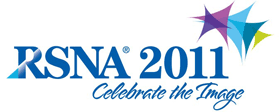
Abstract Archives of the RSNA, 2011
MSVA51-04
Coronary CT Angiography vs Conventional Catheter Angiography for Guiding Therapeutic Decision-making in Patients with High Likelihood of Coronary Artery Disease
Scientific Formal (Paper) Presentations
Presented on December 1, 2011
Presented as part of MSVA51: Cardiac Series: Clinical Trials—Multimodality Imaging
 Trainee Research Prize - Resident
Trainee Research Prize - Resident
Antonio Moscariello MD, Abstract Co-Author: Nothing to Disclose
Thomas Henzler MD, Abstract Co-Author: Nothing to Disclose
Rozemarijn Vliegenthart MD, PhD, Abstract Co-Author: Nothing to Disclose
John William Nance MD, Abstract Co-Author: Nothing to Disclose
Terrence O'Brien MD, Abstract Co-Author: Nothing to Disclose
U. Joseph Schoepf MD, Presenter: Speakers Bureau, Bayer AG
Speakers Bureau, Siemens AG
Medical Advisory Board, Bayer AG
Research grant, Bayer AG
Research grant, Bracco Group
Research grant, General Electric Company
Research grant, Siemens AG
Mathias Meyer, Abstract Co-Author: Nothing to Disclose
Peter Zwerner MD, Abstract Co-Author: Nothing to Disclose
Giancarlo Savino MD, Abstract Co-Author: Nothing to Disclose
Lorenzo Bonomo MD, Abstract Co-Author: Nothing to Disclose
Surprisingly little information is available on the role of coronary CT angiography (cCTA) for guiding patient management, beyond the ability of this test to detect and exclude significant stenosis. We aimed at evaluating the diagnostic efficacy of cCTA for therapeutic decision-making in patients with high likelihood of coronary artery disease (CAD); specifically the ability of cCTA to differentiate patients without and with a need for revascularization and to select the appropriate revascularization procedure.
With IRB approval and in HIPAA compliance, 185 consecutive symptomatic patients (121 men; 59.4±9.7 years) with a prior positive stress nuclear myocardial perfusion study prospectively underwent cCTA and elective conventional catheter angiography (CCA). The accuracy of cCTA compared with CCA for detection of significant (≥50%) stenosis was determined. Based on cCTA results, a decision was made whether to indicate revascularization or conservative therapy and the appropriate revascularization procedure (percutaneous coronary intervention - PCI - versus coronary artery bypass grafting - CABG) was selected. Diagnostic accuracy of decisions based on cCTA was calculated using those based on CCA as the reference standard.
Compared with CCA, cCTA showed a per-patient and per-segment diagnostic accuracy, sensitivity, specificity, negative predictive value, and positive predictive value for detection of significant stenosis of 95.1%, 100%, 91.8%, 100%, 89.3% and 96.7%, 94.0%, 97.0%, 99.2%, 79.6%, respectively. 113 patients (61%) did not undergo revascularization of which 42 (23%) were free of CAD. In 178 of 185 patients (96%), the same therapeutic strategy (conservative versus revascularization) was chosen based on cCTA and CCA. When revascularization therapy was indicated, the appropriate revascularization procedure (PCI versus CABG) was chosen in 66 of 72 patients (92%) based on cCTA results.
In patients with high likelihood of CAD, a majority is managed conservatively and a considerable portion are free of CAD. In such a population, cCTA results in similar therapeutic decisions as CCA for differentiating patients without and with a need for revascularization and for selecting the appropriate revascularization strategy.
cCTA holds substantial potential for guiding therapeutic decision-making in patients with suspected CAD and for reducing unnecessary diagnostic CCA procedures.
Moscariello, A,
Henzler, T,
Vliegenthart, R,
Nance, J,
O'Brien, T,
Schoepf, U,
Meyer, M,
Zwerner, P,
Savino, G,
Bonomo, L,
Coronary CT Angiography vs Conventional Catheter Angiography for Guiding Therapeutic Decision-making in Patients with High Likelihood of Coronary Artery Disease. Radiological Society of North America 2011 Scientific Assembly and Annual Meeting, November 26 - December 2, 2011 ,Chicago IL.
http://archive.rsna.org/2011/11003043.html


 Trainee Research Prize - Resident
Trainee Research Prize - Resident